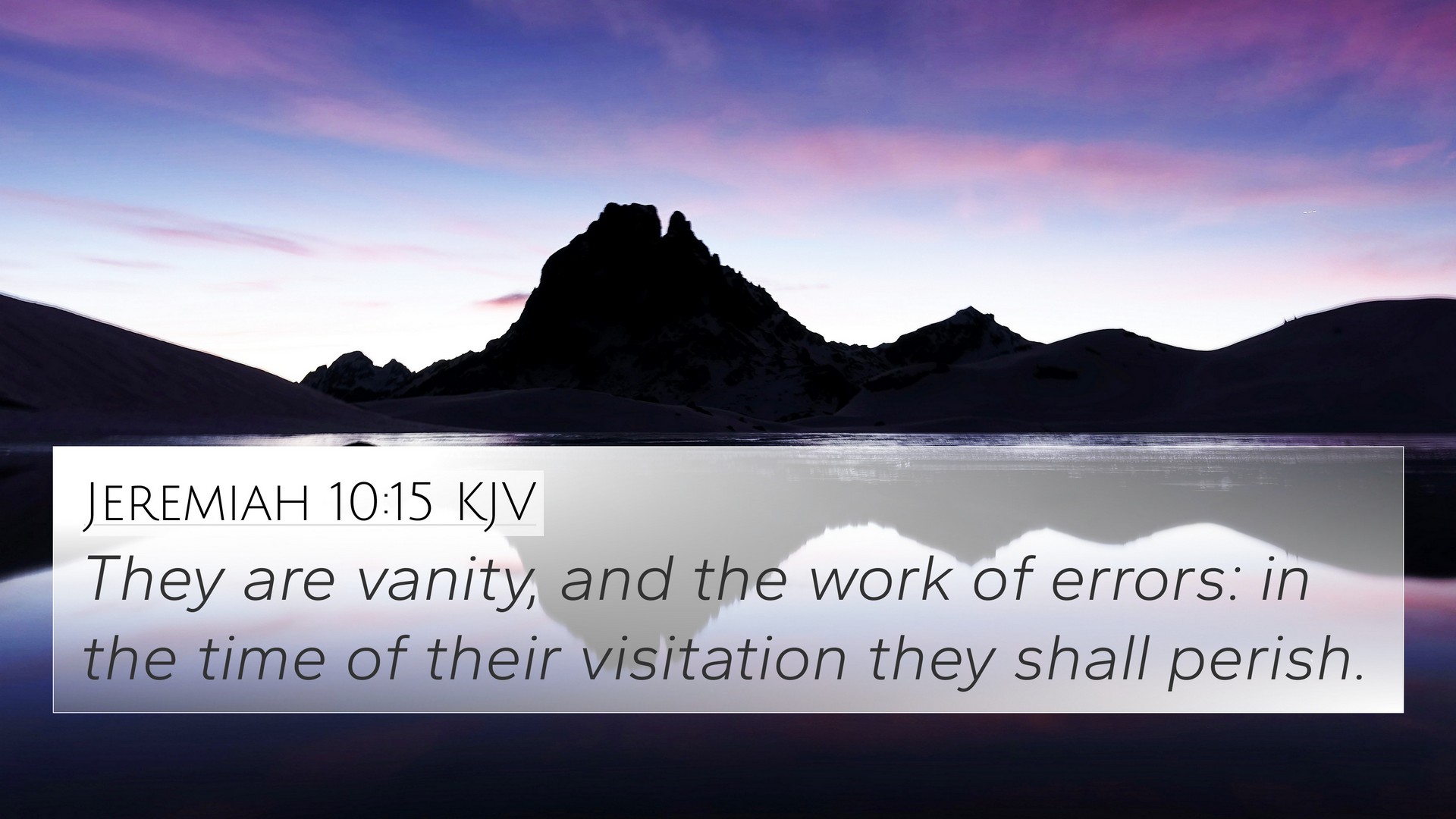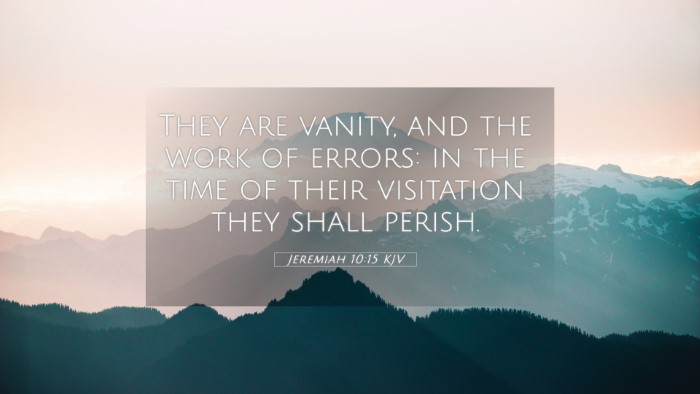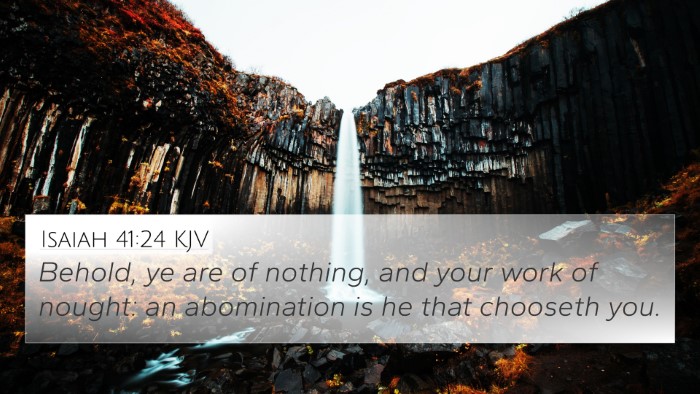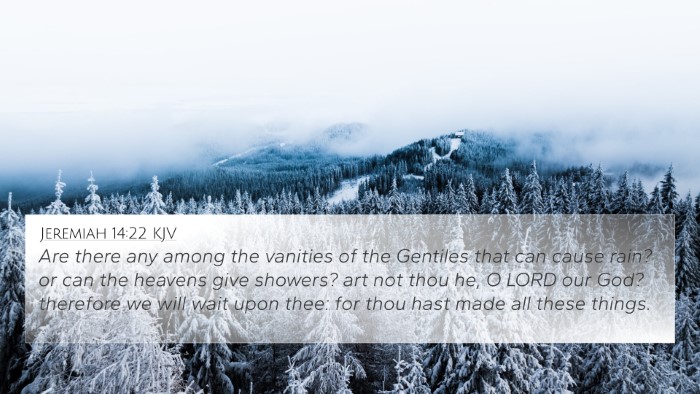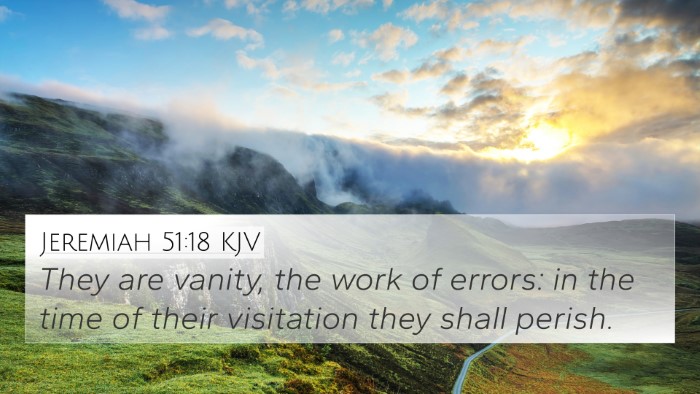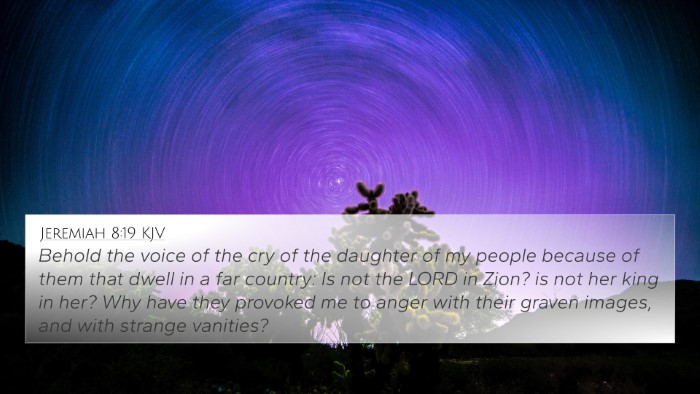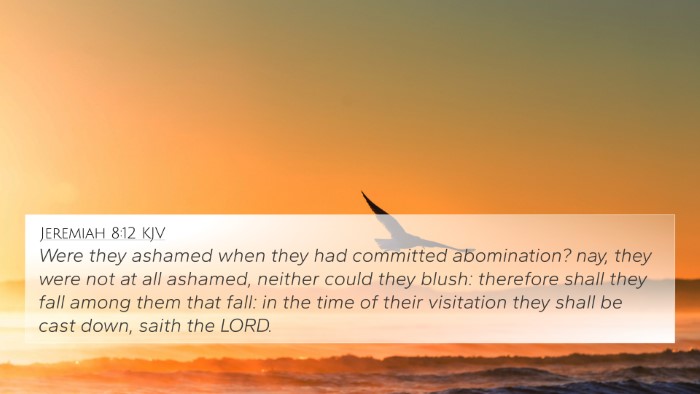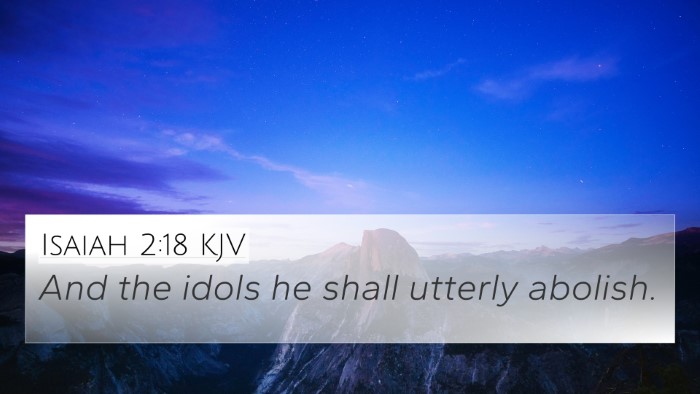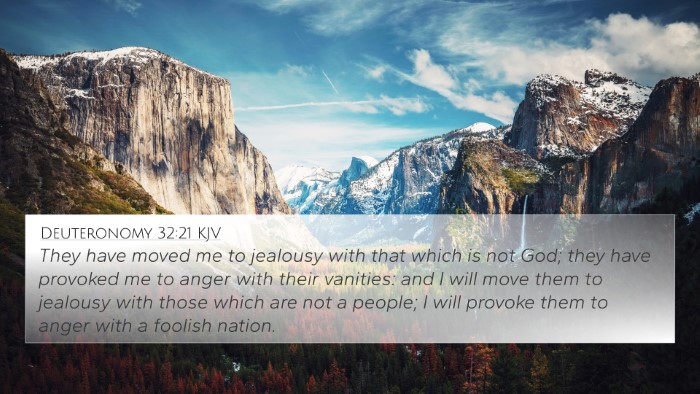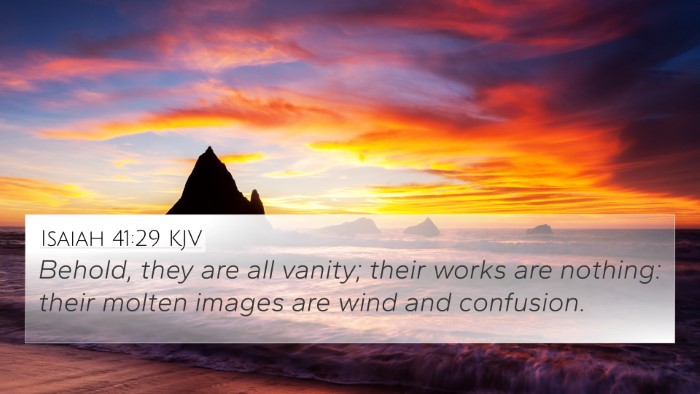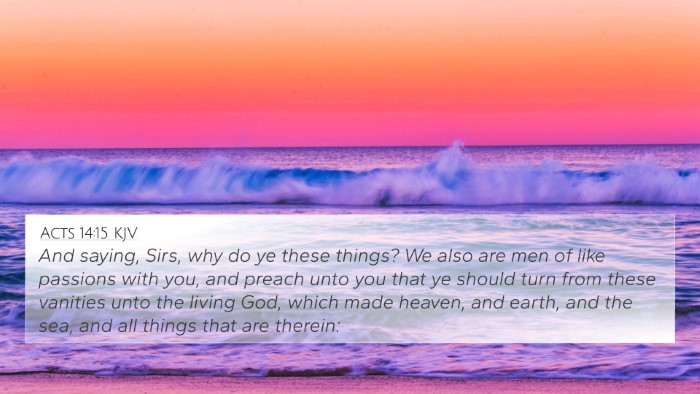Understanding Jeremiah 10:15
Jeremiah 10:15 states: "They are vanity, and the work of errors: in the time of their visitation they shall perish." This passage is crucial in understanding the nature of idols and the futility of worshipping them. Below we explain the meaning of this verse based on insights from public domain commentaries.
Summary of Commentary Insights
Through the insights of notable commentators like Matthew Henry, Albert Barnes, and Adam Clarke, we will explore the deeper meanings of this verse.
Matthew Henry's Commentary
Matthew Henry emphasizes the idea that idols are mere illusions, devoid of any real power. They are termed "vanity" because they do not bring true satisfaction or help. Henry notes that the phrase "the work of errors" reflects the misguided efforts of humans in creating these idols, which ultimately lead to disappointment.
Albert Barnes' Commentary
Albert Barnes further elucidates this verse by explaining that in the time of judgment, these idols will be shown to be futile and will perish. He highlights that the "visitation" refers to a time when God's judgment will demonstrate the unsustainability of reliance on man-made gods.
Adam Clarke's Commentary
Adam Clarke provides additional perspective by discussing the cultural context of idol worship in Jeremiah's time. He notes that these idols were often painstakingly crafted but utterly powerless. Clarke underscores that the emphasis on their vanity serves as a warning against placing trust in anything other than God.
Key Themes in Jeremiah 10:15
- Idolatry: A central theme in the verse, emphasizing the emptiness of worshipping false gods.
- Divine Judgment: The indication of a future time when such idols will be judged.
- Human Error: Acknowledges the folly in creating and relying on these false representations of divinity.
Cross-References for Deeper Understanding
Jeremiah 10:15 correlates with various other Biblical passages that enhance its themes:
- Psalm 115:4-8: Highlights the nothingness of idols.
- Isaiah 44:9-20: Discusses the folly of idol-making.
- 1 Corinthians 8:4-6: Addresses the reality of gods in culture versus the one true God.
- Habakkuk 2:18-19: Condemns the futility of relying on idols.
- Exodus 20:3-6: Establishes the commandment against idolatry.
- Romans 1:21-23: Describes the exchange of the glory of God for images.
- Acts 17:29: Teaches about the nature of God versus idols.
Exploring Connections Between Bible Verses
In analyzing Jeremiah 10:15, we see connections not only to the themes of idolatry and divine judgment but also how these concepts interlink throughout the Scriptures:
- Linking Bible Scriptures: Through the connection between Jeremiah's warning and Paul's admonishments in the New Testament.
- Thematic Bible Verse Connections: A continuous narrative of God's sovereignty versus human folly via idolatry.
- Bible Verse Parallels: Echoes of warning against idol worship resonate across both Testaments.
Tools for Bible Cross-Referencing
For deeper studies, utilizing tools such as a Bible concordance or a cross-reference Bible study guide can profoundly enhance understanding. Such tools can aid in discovering:
- How to find cross-references in the Bible
- Identifying connections between Old and New Testament teachings
- Comprehensive Bible cross-reference materials for thematic studies
Conclusion
In conclusion, Jeremiah 10:15 serves as a poignant reminder of the consequences of idolatry and the importance of placing faith solely in God. Through comparative Bible verse analysis and the exploration of cross-referenced scriptures, believers can steadfastly root themselves in the truth of God's word.
